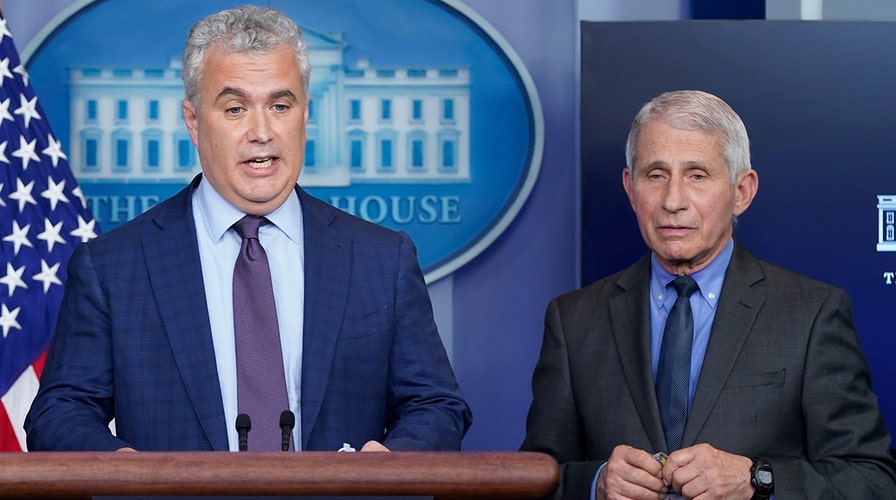Fox News Flash top headlines for April 13
Fox News Flash top headlines are here. Check out what's clicking on Foxnews.com.
White House Coronavirus Task Force coordinator Jeff Zients said that the White House received no advance warning that the Food and Drug Administration (FDA) would recommend a pause of the Johnson & Johnson COVID-19 vaccine.
"We were notified last night there would be an announcement in the morning," Zients said, after state officials said they'd been caught off guard. He added the White House didn’t know the details of the announcement and had "no other involvement."
The FDA issued an abrupt pause recommendation on the J&J vaccine, which has already been used to innoculate 6.8 million people, after six developed blood clots within weeks of vaccination.
FDA RECOMMENDS PAUSE OF JOHNSON & JOHNSON COVID-19 VACCINE AFTER BLOOD CLOT CASES
"Right now, these adverse events appear to be extremely rare," the agency said on Twitter. "Treatment of this specific type of blood clot is different from the treatment that might typically be administered. CDC will convene a meeting of the Advisory Committee on Immunization Practices (ACIP) on Wednesday to further review these cases and assess their potential significance. FDA will review that analysis as it also investigates these cases."
In a statement posted to the agency's website, the FDA said the type of blood clot is called cerebral venous sinus thrombosis, and that it was seen in combination with low levels of blood platelets. All six cases involved women between the ages of 18 and 48, and symptoms occurred between six and 13 days post-vaccination.
The Centers for Disease Control and Prevention (CDC) Advisory Committee on Immunization Practices (ACIP) plans to meet Wednesday to further review the blood clotting cases and debate their potential impact.
CLICK HERE FOR COMPLETE CORONAVIRUS COVERAGE
Meanwhile, Zients said the pause would not significantly impact the White House’s vaccination goals. "We have more than enough supply of Pfizer and Moderna to continue the current pace of 3 million shots per day."
The CDC said Monday that 120.8 million people have been vaccinated, 74.1 million of which have been fully vaccinated.















































